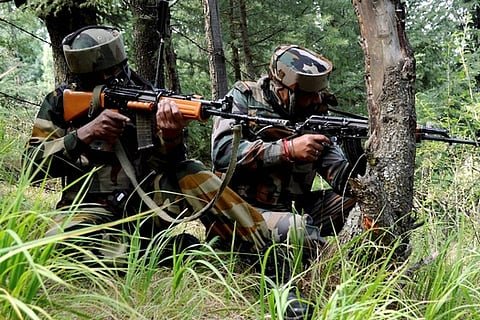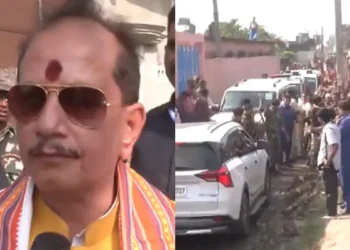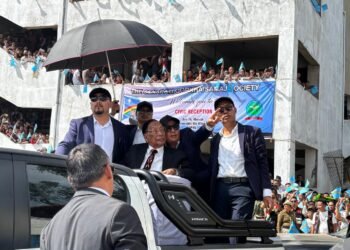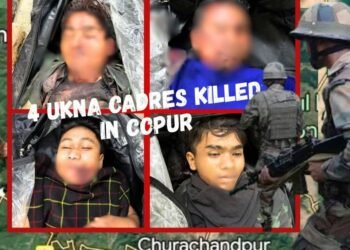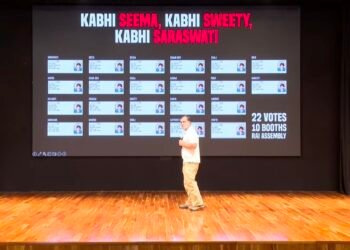Manipur: KZC, COTU Silent on UKNA Killings
November 5 —The Kuki-Zo Council, the apex body representing the Kuki-Zo civil society organisations, and the Committee on Tribal Unity (COTU), one of the most influential tribal platforms in Manipur’s hill politics, have remained conspicuously silent on the November 4 killings of four alleged members of the United Kuki National Army (UKNA) during a counter-insurgency operation in Khanpi village, Henglep subdivision of Churachandpur district.
Their silence stands in stark contrast to the groundswell of condemnation from other major Kuki-Zo bodies — including the Kuki Inpi Manipur (KIM), the Kuki Organisation for Human Rights (KOHUR), the Kuki Students’ Organisation (KSO), and the Kuki Women’s Union (KWU) — which have denounced the killings as a “cold-blooded act” and “extrajudicial execution.”
A Growing Rift Within
While KIM and KOHUR led with sharp, detailed statements accusing the security forces of a “state-sponsored atrocity,” the absence of any response from the Kuki-Zo Council and COTU has raised eyebrows and stirred unease within the hills.
Observers say this silence exposes a deepening fracture within the Kuki-Zo community — one that has widened over two years of ethnic conflict, displacement, and political fatigue.
Assam Rifles Eliminates 4 Kuki Militants In Manipur
4 cadres of the United Kuki National Army (UKNA) killed in an encounter with the Assam Rifles early this morning around 6 a.m. in Churachandpur.
Dead bodies of UKNA Militants were brought to the hospital later. pic.twitter.com/0NHfKouf2w
— India Strikes YT 🇮🇳 (@IndiaStrikes_) November 4, 2025
“These organisations were once united by a common cause — justice and self-determination,” said a Churachandpur-based community elder. “But now, internal rivalries, conflicting strategies, and growing alignments with Delhi have eroded that unity.”
Observors suggest that KZC leadership, currently involved in negotiations with the Centre, is exercising restraint to avoid jeopardising its standing in the ongoing dialogue. COTU may also be choosing silence to preserve neutrality amid intensifying factionalism.
READ: UKNA Slams ‘Cowardly Act’, Calls Khanpi Killings `Murder’
READ: Manipur: Kuki-Zo Groups Call Killings of Four Tribal Youth ‘Cold-Blooded Murder’
Analysts believe the silence reflects both caution and fear. With central agencies and security forces still active across the hills, many community leaders are wary of being perceived as sympathetic to insurgent groups.
“There’s an atmosphere of intimidation,” said a former student leader now working with a civil society coalition. “A strong statement can bring scrutiny or even retaliation. But silence weakens our moral centre — it tells our people that fear has replaced conviction.”
The UKNA Factor
Part of this hesitancy also stems from UKNA’s own troubled image.
In recent months, the outfit has alienated moderates within the Kuki-Zo community by issuing what critics called “Taliban-like diktats.” On October 24, the UKNA banned sports, entertainment, and festivities in the hills, accusing Kuki National Organisation (KNO) Chief P.S. Haokip of plotting to eliminate its cadres.
The group alleged that Haokip had chaired four meetings to “target and neutralise” UKNA members and claimed he had engaged with “assassins and CID sleuths.” The statement accused Haokip of “betraying the Kuki cause” and warned him to “cease dangerous games” and focus on justice for the people.
In a follow-up message today, UKNA urged security forces “not to be misled by a few who camouflage themselves as leaders of the people while usurping power and money.”
Formed in 2015, the UKNA operates primarily in Manipur’s hill districts and is not part of the Suspension of Operations (SoO) agreement signed by other Kuki militant groups. Its independent stance — often clashing with both state forces and rival Kuki factions — has made it a volatile player in the region’s conflict dynamics.


